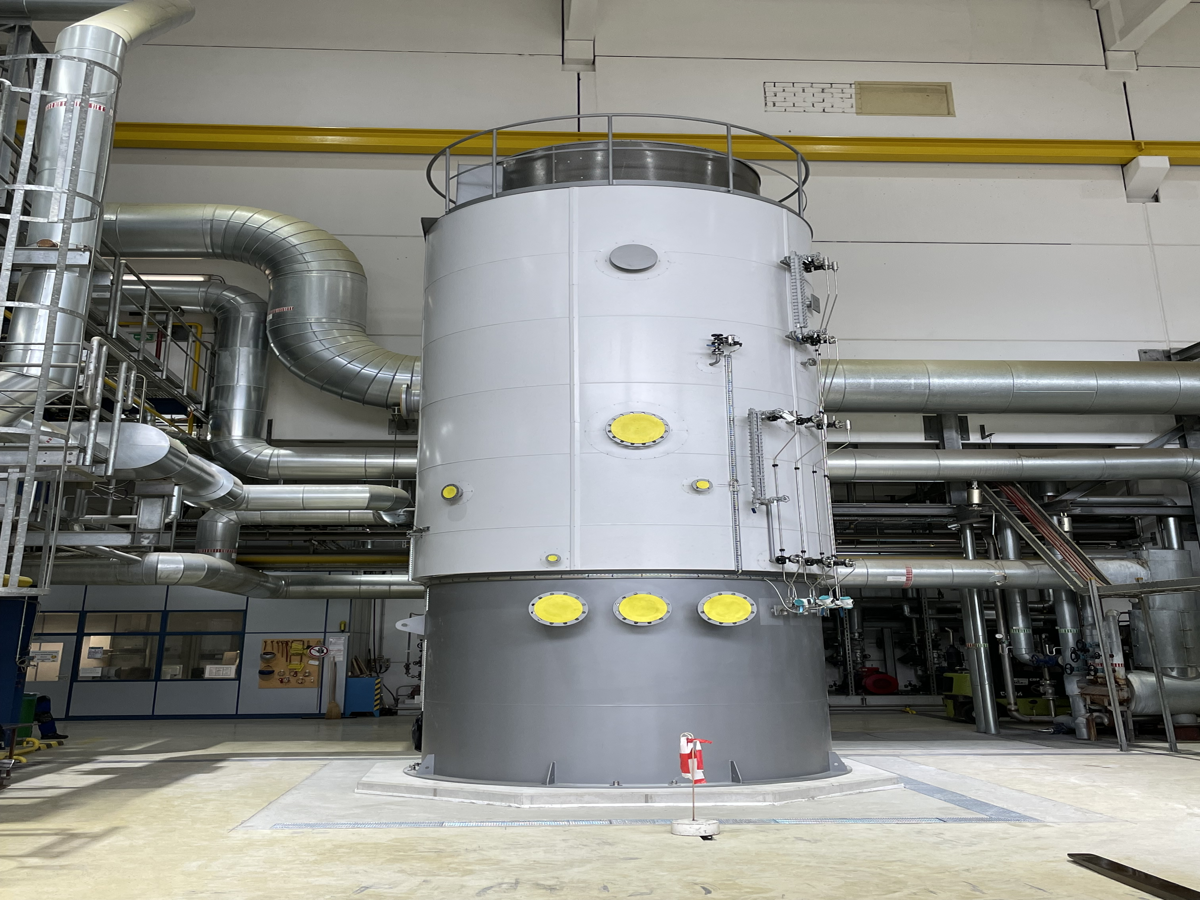Efficient energy supply is vital for any industry to remain viable, and paper is no exception. The implementation of new P2H boilers across UPM’s paper mills in Finland and Germany is a further example of how energy-intensive sectors can take practical steps towards reducing emissions whilst contributing to the wider transition towards renewable energy, and a more sustainable future for all.
Powering progress across UPM paper mills
‘Power-to-Heat’ means converting electrical energy into thermal energy for example in the form of steam. The steam can then be used for various industrial or heating applications, such as heating buildings, replacing less efficient and less flexible systems that are powered by polluting fossil fuels. In paper production, it is mainly used for drying paper.


Peter Frömmrich, the project manager at UPM Schongau, and the new boiler at UPM Ettringen.
Heat generation by electrical energy is highly efficient compared to fossil fuel boilers, which tend to lose a significant amount of energy during combustion. They are also a cleaner source of heating which doesn’t produce emissions or pollutants, whilst their efficiency makes them more cost effective in the long-run – a solution for reducing emissions and fuel costs simultaneously.
Investment in efficient energy generation is one example of practical measures that are driving the gradual move away from fossil fuels at UPM paper mills. One of the first sites to receive the new boilers will be UPM Schongau, which has matched a respect for papermaking tradition with its commitment to progress in its 136-plus-year history. Fast forward to the present day and foundations are being laid at the German facility for the new electric boiler to arrive, expected to be operational by the end of 2023.
The instalment at UPM Schongau will be followed closely by sister plant UPM Ettringen, with six more electric boilers also planned, including one at UPM Nordland and UPM Rauma. By improving the efficiency of on-site heat generation systems, the new P2H electric boilers can simultaneously reduce emissions, lower energy costs, and secure heat supply.
Flexibility, efficiency, and sustainability
Peter Frömmrich is the project manager at UPM Schongau. He explains another impressive aspect of P2H boilers, which is their flexibility: “Within a few seconds, the boiler is ready for use and immediately generates thermal energy in the form of steam.” This flexibility allows the boiler to operate at various levels of output – in the range between 0 and 40 MW.
“Depending on the requirements from the plant as well as the availability of natural gas and electricity, and their procurement costs, the electric boiler offers an ideal supplement to the existing energy generation park,” Frömmrich explains. This contributes to an intelligent load-management process , which makes it possible for sites like UPM Schongau to take advantage of enormous saving potential as well as support the power grid and actively contribute to grid security. Similar schemes and mechanisms are used in most of UPM’s mills in all operating countries of our production sites.
This makes the electric boilers a valuable tool not only for the mills at the hyperlocal level, but also for the grid at the national level, by balancing supply and contributing to grid security. Current instabilities in the energy market reinforce the need for these advanced technologies, to maintain smooth operations as well as preventing against blackouts – even in a difficult supply situation.
Investing in energy-efficient technologies is crucial for securing a sustainable future for paper in the long run, as well as bringing game-changing benefits that meet the short-term demand for efficiently produced paper products with a lower carbon footprint. The introduction of electric boilers across our paper making sites simultaneously reduces energy consumption and fuel costs, bringing UPM closer to the 2030 target of reducing CO2 emissions from the fuels and purchased electricity by 65%.